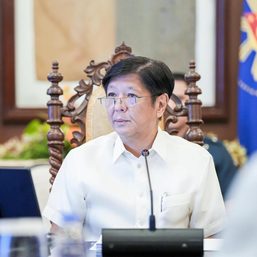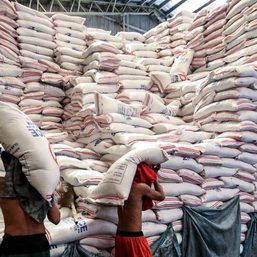SUMMARY
This is AI generated summarization, which may have errors. For context, always refer to the full article.
![[OPINION | Just Saying] A serious blow to transparency](https://www.rappler.com/tachyon/2020/09/blow-to-transparency-september-18-2020.jpg)
The release of the Statement of Assets, Liabilities and Net Worth (SALN) of public officials must be mandatory and ministerial on the part of the Ombudsman or any government agency when requested by anyone. Mandatory means that the “request” must be considered a command from the citizen or groups of individuals asking for the SALN. Ministerial means there should be no discretion to reject.
SALNs must be liberally available. The right of the taxpayer to know the extent of a public official’s wealth must be devoid of any qualifications and conditions. It must be absolute. Only in this way can graft and corruption be effectively forestalled.
Many times over, the constitutional principles that “public office is a public trust” and that “public officers and employees must, at all times, be accountable to the people, serve them with utmost responsibility, integrity, loyalty, and efficiency; act with patriotism and justice, and lead modest lives” have been bandied about not only by critics and the citizenry at large but, hypocritically, by many politicians and government officials.
And most of the time, the citizenry has been frustrated. Still, the prevailing government attitude, contrary to the transparency which the Constitution enunciates, has been one of secrecy. The recent Memorandum Circular No. 1 Series of 2020 of the Office of the Ombudsman is the most recent blow against accountability, both as to substance and procedure.
For instance, it provides, among others, that a “requester” can obtain a SALN upon a court order pursuant to a pending case. The default-norm is for the citizen to file a case in court and, during that pending proceeding, proffer a motion to obtain the SALN. That is a rigorous process necessarily entailing substantial litigation costs not to mention undue delays. The right to know has become a burden.
It should be the opposite. The burden must be on the public officials. It is for them to run to the courts with all its attendant financial costs and procedural disadvantages to obtain an injunction proving by convincing evidence that a citizen has no right to get their SALNs.
These officials must persuade the court that they will suffer great and irreparable injury if the SALN will be made public. The bar must be set supremely high for the non-release. And the only case for this to happen is when the requested SALNs are to be used to abusively perpetuate an activity or procedure designed to damage a higher and more fundamental value in our democratic system.
Memorandum Circular No. 1 Series of 2020 likewise states: “in all other cases, no SALN shall be furnished to the requester unless he/she presents a notarized letter of authority from the declarant allowing the release of the requested SALN.” This prohibitive rule is insultingly ridiculous. Why should investigative journalists be mandated to ask a written authority for the release of relevant and incriminating evidence from the very public official-declarants being investigated? Do we even have to ponder the response of those officials? In matters of graft and corruption, to give power to the investigatee over the investigator in the conduct of an investigation is beyond perplexing.
All laws, rules, circulars, and procedures must make it quite difficult for public officials to contest the request for their SALNs’ release, conveying the unmistakable message that it is practically futile to resist.
We often hear the argument that public officials also have lives that must remain private. That may be logical but not necessarily right. They belong to a class that is granted enormous powers, privileges, perks, authority, and financial resources, both for their work and their means of livelihood, by the Filipino people. And all these grants can be temptingly corrupting. It is their duty to be responsible for and transparent about what they do at a level far greater than ordinary citizens.
In matters involving public accountability, the private lives of government officials are not separable from their official public duties. Being “property of the public,” their honesty is the principal consideration for tenure. As early as 1960, a then-enlightened Supreme Court ruled:
The government cannot tolerate in its service a dishonest official, even if he performs his duties correctly and well, because by reason of his government position, he is given more and ample opportunity to commit acts of dishonesty against his fellow men, even against offices and entities of the government other than the office where he is employed; and by reason of his office, he enjoys and possesses a certain influence and power which renders the victims of his grave misconduct, oppression, and dishonesty less disposed and prepared to resist and to counteract his evil acts and actuations. The private life of an employee cannot be segregated from his public life. Dishonesty inevitably reflects on the fitness of the officer or employee to continue in office and the discipline and morale of the service. (Nera vs. Garcia G.R. No. L-13160 106 Phil 1031)
For the government to make it hard for people to get a hold of vital documents is an outright affront against good governance and decency. All initiatives to fight corruption coming from every sector should not be stunted. The ability, resources, and energy of private individuals and groups may even be far better than the government.
One can just imagine the effectiveness of a partnership between the “requesters” and the “providers” in pinning down the corrupt. Unfortunately, that synergy is not happening. Instead, the perception that the provider has even emboldened, protected, and safeguarded the corrupt may be exponentially enhanced by this new Ombudsman Circular.
There can be no greater irony than an agency tasked with cleaning up the government of corrupt people providing these undesirables a potent weapon to remain untouched.
And the sum total of all these is distrust. The confidence in the institution tasked with fighting corruption is greatly diminished, not to mention put into serious question. And when that far-reaching damaging effect occurs, confidence will wane and that would be a very serious proposition in a democratic government.
Of the controversies besetting the country – the fake beach in Manila Bay, the “foreign” tower in our military camps, the Pemberton sudden pardon, the multi-billion PhilHealth mess, the seeming lack of concrete plans to fight COVID-19, China’s aggressiveness in the West Philippine Sea, the friction with Malaysia over the Sabah issue, the aftermath of the non-granting of the ABS-CBN franchise, the President’s health, the drug problem, the number of extrajudicial killings – this controversial Ombudsman Memorandum Circular and the effectivity of the Anti-Terrorism Law are the issues that will have a debilitating effect on our democratic life. Both are unconstitutional and must be junked immediately.
By January 2020, the Philippines slid down to 113th in the global Corruption Perception Index (CPI) provided by Berlin-based Transparency International. This is the lowest rating since 2011. Are we to expect anything better or worse? It seems likely that the Ombudsman Memorandum Circular No. 1 Series of 2020 may just hasten the drop. – Rappler.com
Mel Sta Maria is dean of the Far Eastern University (FEU) Institute of Law. He teaches law at FEU and the Ateneo School of Law, hosts shows on both radio and Youtube, and has authored several books on law, politics, and current events.
Add a comment
How does this make you feel?




![[WATCH] #TheLeaderIWant: Filipino voters sound off on community issues a year before 2025 elections](https://www.rappler.com/tachyon/2024/05/filipino-voters-sound-off-on-community-issues-1.jpg?resize=257%2C257&crop=276px%2C0px%2C720px%2C720px)





There are no comments yet. Add your comment to start the conversation.